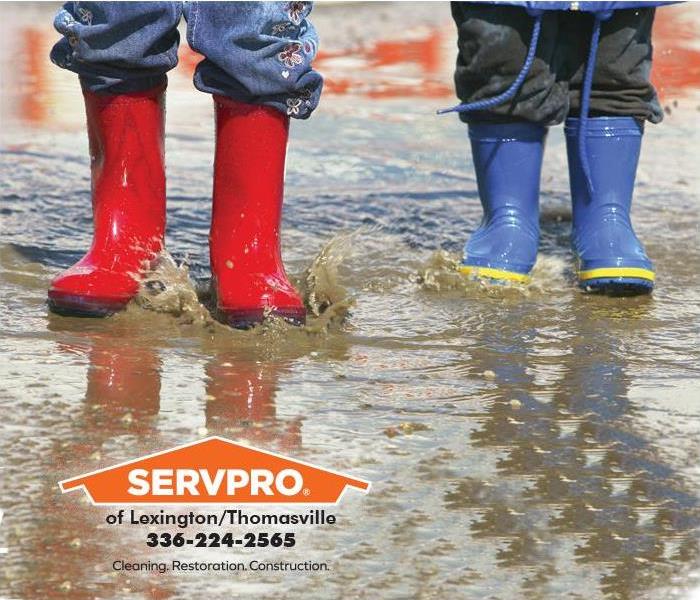Remedy landscape drainage problems In Your Wallburg Home
5/31/2022 (Permalink)
Homeowners understand that reaping the rewards of beautiful lawns and gardens requires hard work. But sometimes even hard work won’t be enough to prevent problems in a lawn or garden.
Drought can be very harmful to lawns and gardens, but so, too, can excessive amounts of water and precipitation. Soggy properties can make it difficult for lawns and gardens to thrive. Standing water on a property can be a health hazard. That’s because standing water makes a prime breeding ground for mosquito larvae and other pests. In addition, standing water can seep into your home cause mold or structural issues.
While homeowners cannot control precipitation, they can affect the impact that rainwater has on their properties.
Replace/repair downspouts
Gutters and downspouts are designed to move rainwater away from the home. Too often, however, gutters and downspouts become clogged or do not work effectively. Overflowing gutters will transfer rainwater down the side of a home, where it can puddle at the foundation. This water can ultimately suffocate a lawn, and it may cause interior damage to the home as well.
First, inspect and clean all gutters. Leaves, nests, sticks, and even dead animals can block the flow of water in a gutter. Test downspouts by running hose water from the top of the gutter.
Downspouts should be pointed away from the home and may need to be extended so they direct water away from the dwelling.
Plant water-loving trees or shrubs
In some instances, whether it’s a byproduct of poor property grade or sloping land, water can pool regardless of how well the gutter system is working. Determine where the problem is and speak with a landscaper to see if there are any plants that thrive in moist conditions. The roots of these plants can protect against soil erosion and may absorb enough water to guard against puddling. In addition, amending the soil with organic matter, pea gravel or another coarse aggregate can prevent water pooling.
Consider a drainage system
When confronted with drainage issues that cannot be remedied by other methods, homeowners may need to install drainage systems. Such systems often employ French drains that are built through or around the perimeter of a property. French drains are typically a trench that contains perforated plastic pipe and is backfilled with gravel. Water runs into these channels and gets swept away by the piping. Do-it-yourselfers may want to try installing drainage systems themselves. However, because excavation is necessary, it’s often best to have the property inspected and marked for utilities, then have the drainage system installed by professionals.
Finally, if your lawn’s drainage issues has caused problems to your home, give the experts at SERVPRO of Lexington/Thomasville a call at (336) 224-2565 and we will come out and assess the issue at no charge. Because at SERVPRO we’re here to help.






 24/7 Emergency Service
24/7 Emergency Service
